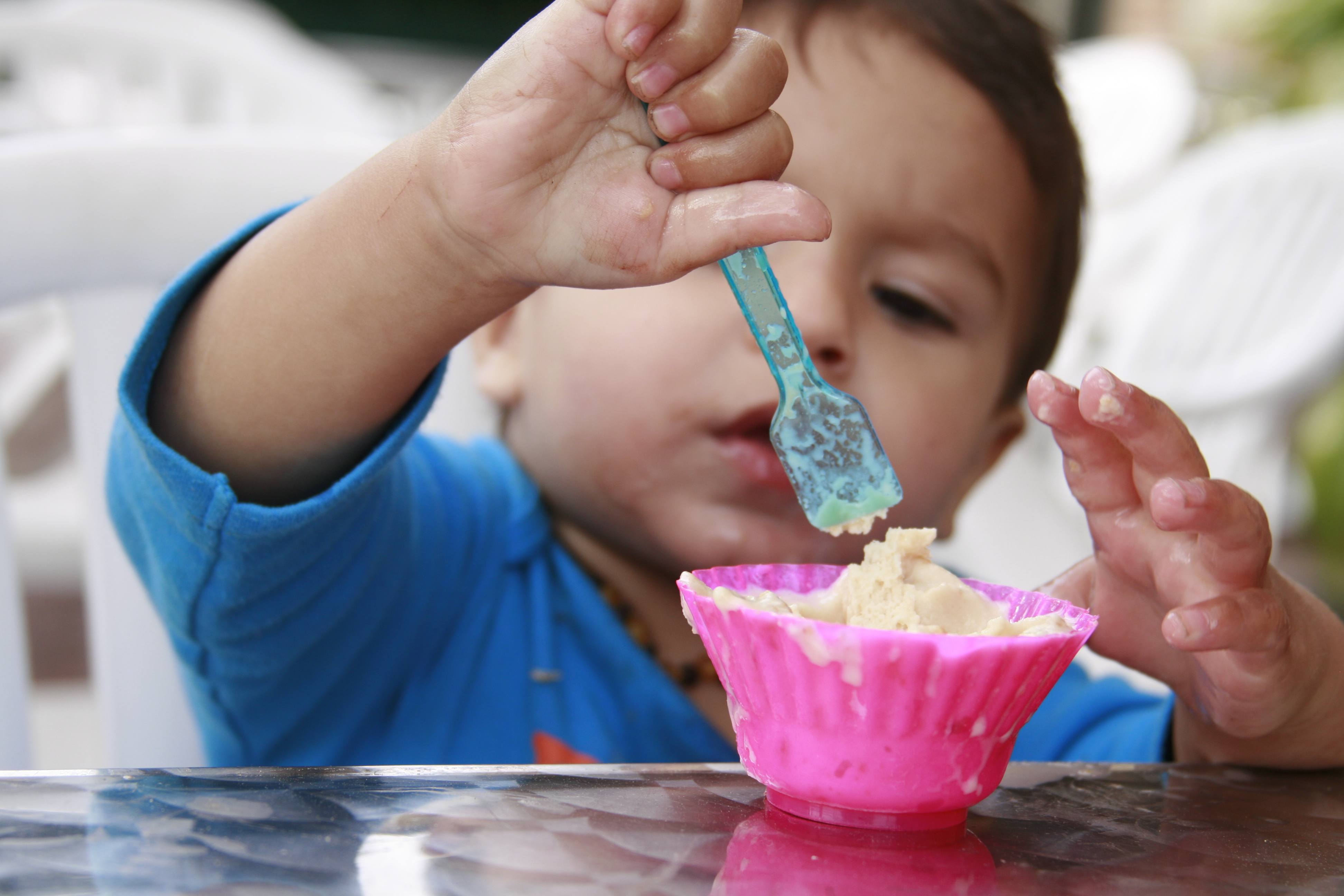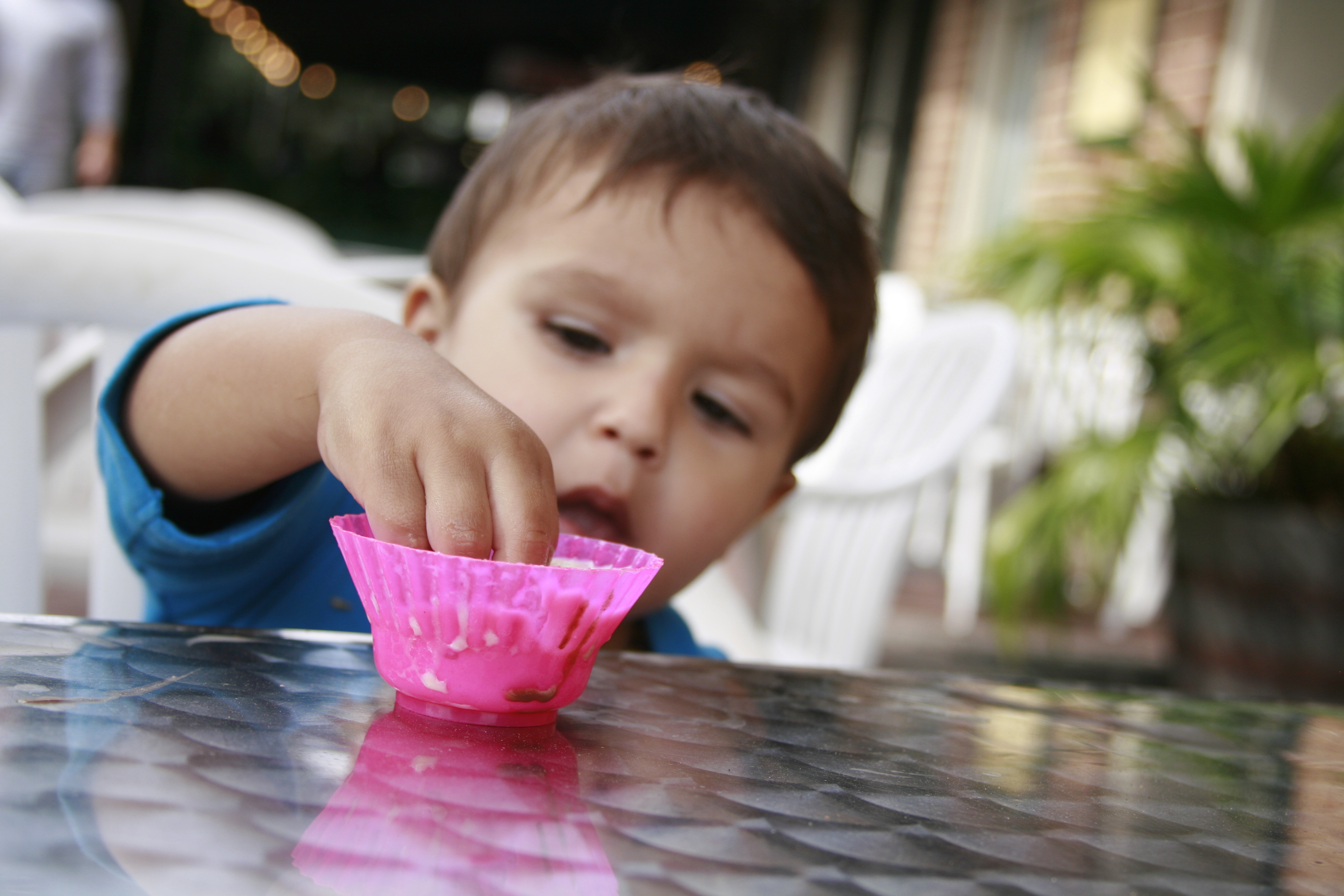
No parent chooses to raise a kid to be a TV-and-video-game-addicted-couch-potato, but unfortunately that’s exactly what can happen unless we learn how to motivate our kids to better pursuits. And one of the best ways to begin to inspire kids to do more than sit in front of the tube is to teach them how to work with their natural, intrinsic drive to be productive, creative contributors to the household. Kids want to feel like they are part of something bigger than themselves, so don’t let them drag their feet about doing household chores. Dan Pink, author of Drive: What Motivates Us tells us why household chores are good for kids: “Chores show kids that families are built on mutual obligations and that family members need to help each other.”
Kids are not born with the work ethic. Character traits of tolerance, perseverance and self-discipline are learned—and must be taught by us parents. It’s up to us to teach our kids the difference between wanting and getting, and how to postpone gratification in order to accomplish and succeed later as an adult.
I have found that both my six-and-a-half year old and my four year old love to help me with chores when I can help them see that they are enjoyable and entertaining. My six year old has been helping me with my essential oil tasks since I began. She also has already become Little Miss Farmer, and gathers eggs, picks flowers, finds new vegetables growing on our new farm, takes care of the chickens, gets Sunflower seeds ready for roasting, and helps me cook and bake. Barefoot Boy loves to search for our free range chicken eggs, help pick berries (yes, he eats most of them!), and take care of the goats.
None of those things are consistent, everyday chores for them yet, but they have already learned to be productive family members. In this blog I want to help us all take these sometimes chores a step further, and give you some ideas for household chores for kids under seven, that my kids, and yours, can do every day.
I want to look at four important considerations when planning and assigning chores to our kids.
- Tips and Pitfalls to keep in mind about kids and chores.
- Age-appropriate chores for children birth through age seven or so.
- Ways to consistently check up on your children’s faithfulness to their chores.
- How to appropriately reward your children for their help with the family chores.
1. Tips and Pitfalls to keep in mind about kids and chores.
Sometimes there is a fine line between motivating our children to do their chores and overwhelming them with demands and responsibilities that de-motivate them. Here are a few pitfalls to avoid.
- Don’t insist on perfection—No one is perfect. It’s better to have a relaxed approach to how well our kids do their chores.
- Don’t delay—Your kids are probably more capable than you think. Kids can do a lot of chores at an early stage. Remember that they learn best by doing.
- Don’t be stingy with praise—Get that praise going right away! Don’t wait until the chores is done. Praise and encourage your children as they do their chores.
- Don’t be inconsistent—If your children aren’t expected to regularly follow through with their chores, they may start putting them off in the hopes someone else will do them for them.
And here are a few tips that will make it easier to get started.
- Be specific with instructions—Be explicit. If you want your son to clean his room, tell him exactly what to do: “Put your clothes in the closet, your books on the shelf, dishes in the kitchen, and toys in the toy box.”
- Ease into chores for children—First show them how to do the chore step by step. Next, let your child help you do it. Then have your child do the chore as you supervise. Once she’s mastered it, let her do it alone.
- Go easy with reminders and deadlines—Don’t micromanage your kids. Use the when/then technique. For example, say: “When the pets are fed, then you can have your dinner.”
- Kids want to help—Take advantage of their natural desire and encourage their excitement about doing chores.
- Kids have a short attention span—If your child seems to be struggling consistently with doing a certain chore, it may be too involved for him, or he may not be able to do it as well as he wants to.
2. Age-appropriate chores for children birth through age seven or so.
Our children are capable of doing so many more things than we even realize at times that it would be hard to give you an exhaustive list of everything your children can do at a specific age. You can do your own research to find many kinds of chores that might be appropriate for your children. But I would like to suggest several chores for each of three age groupings.
Chores for children ages 2 to 3
- Put toys away
- Fill pet’s food dish
- Put clothes in hamper
- Wipe up spills
- Pile books and magazines
Chores for children 4 to 5
- Brush hair and teeth
- Make their own beds
- Empty wastebaskets
- Pull weeds, if you have a garden
- Clear table
- Water flowers
- Set the table
- Take out the garbage
Chores for children 6 to 7
- Sort laundry
- Sweep floors
- Weed and rake eaves
- Help make and pack lunch
- Keep bedroom tidy
- Care for pets
- Help put away groceries
3. Ways to consistently check up on your children’s faithfulness to their chores.
Teaching kids about chores, money, and work is definitely a lifelong process. One of the most successful ways to inspire your children’s faithfulness to their chores may be through the use of a chore chart. This can be used not only to provide motivation, but also to help teach your children financial responsibility.
Since children are much more excited about cute pictures than simple words, use a chore chart that is visually stimulating to your children. You can do your own research and find many, many ideas for chore charts online. (You can find several different printable charts here.)
A few that we have used and love are:
- Melissa & Doug Magnetic Chart – great for kids under 4
- Accountable Kids System – we adore this system for our nearly 4 year old and 6 year old.
You will want to place your chore chart in a visible location, and make sure to review your children’s accomplishments every day. Love, praise, and acknowledgment are your secret weapons to keep them diligent to their chores.
4. How to appropriately reward your children for their help with the family chores.
When you begin assigning chores to your children be sure that you and your spouse have discussed what kinds of rewards or incentives you will be using with them. Maybe you think chores are just part of belonging to the family. As part of the family you expect them to chip in, help out, and do things around the house
You may want to set up some kind of a reward system. It can be a powerful tool to motivate them. The rewards can be earned privileges, playdates, maybe a movie with a friend, or whatever else you choose to be appropriate. Some parents will choose to reward their kids for their chores with money, thereby teaching important lessons about earning.
Our family was able to pay off our debts and become financially stable through the help of Dave Ramsey’s Financial Peace University. You can read our story here. I would highly recommend his Financial Peace Junior materials, which are designed to help you teach your children about money. It doesn’t just give you the tools to teach your kids to win with money—it shows you how. You can find it here.
Since our children learn the most by watching us, be sure that you are modeling a positive work attitude yourself. Show pride in your accomplishments and share your insights with your kids. Let them see that your career is not just work, it’s an opportunity to grow and to achieve financial stability. Teaching your children to be independent and to have life skills will allow them to feel empowered, and helps to develop healthy self-esteem. Give your children every opportunity to become ready for whatever life brings to them. It starts with simple household chores.

Source
- https://www.parents.com/kids/development/social/motivate-kids-to-do-chores/
- https://www.today.com/parents/what-chores-what-age-guide-parents-2D80555366
- https://www.webmd.com/parenting/features/chores-for-children
- https://childparenting.about.com/od/familyhome/a/choreschild.htm
- https://www.freeprintablebehaviorcharts.com/chore_list.htm
- https://www.parents.com/kids/development/social/motivate-kids-to-do-chores/
- https://www.livingwellspendingless.com/2014/09/19/great-chores-kids/






































